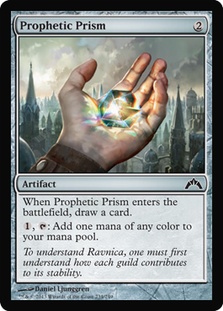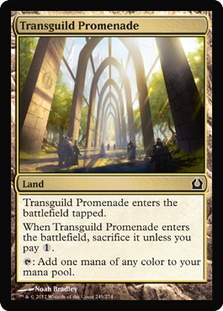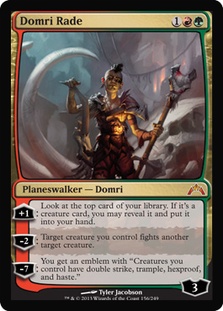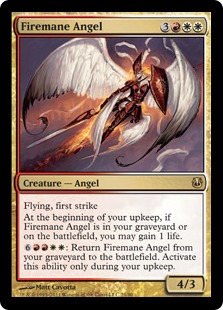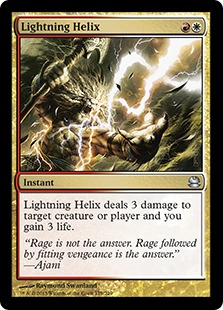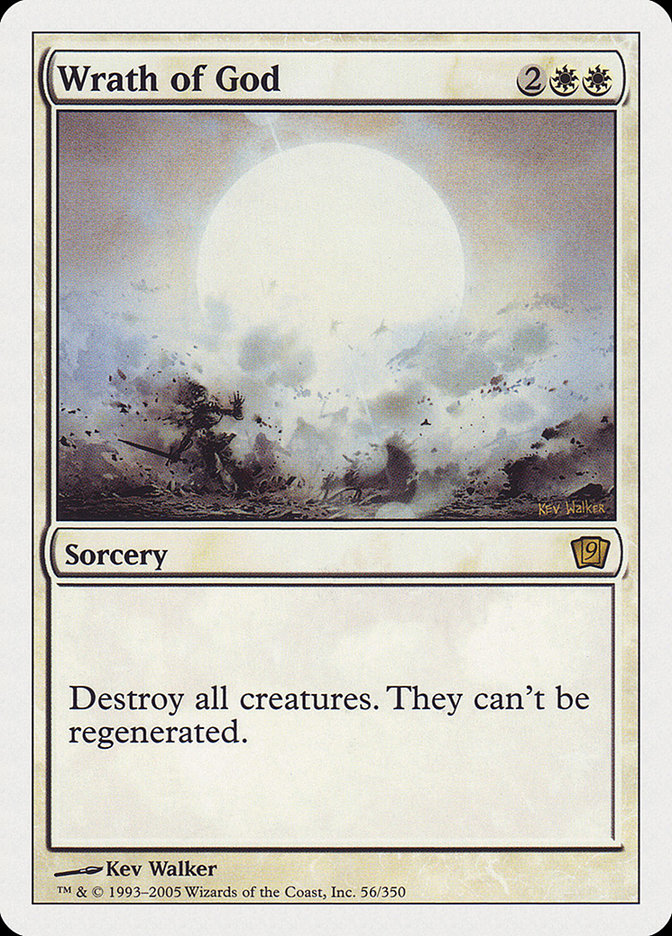Last weekend I had the distinct pleasure of playing with two of my friends, Michael Jacob and Dan Clark, at the Team Grand Prix in Providence, Rhode Island. Although the team finished with a disappointing 5-4 record (we were paired up in round 9 and scooped our opponents into day 2), overall the experience was a very positive one.
Michael, Dan, and I all cut our teeth in the Michigan RIW scene years and years ago, and it was really great to get a chance to play alongside old friends that I don’t get to battle with very often any more. Michael Jacob has been extremely busy with his stream on Twitch (which is a fantastic resource for players trying to improve their play, by the way) and doesn’t play very much IRL Magic, and Dan Clark has since moved to the West Coast to work for Cryptozoic Entertainment. All of these things considered, it was an extremely special experience to get the band back together for one tournament.
In between the fifth and sixth rounds, I was chatting with Ben Isgur and Jackie Lee when they asked:
"Who did you end up teaming up with for the event?"
"MJ and Dan Clark."
"So Team Mono-Grinches?"
"Ha, maybe three years ago. Not so much anymore."
Magic is so often a solitary experience where the battle lines tend to be quite simply you vs. somebody else, repeat this process fifteen times. The dynamic for team events is a very different equation. In order to be successful, a person needs to work together with their teammates in order to achieve the best result. I like the quality of team events where teammates can work together to help one another, especially the fact that players can talk through difficult board positions and collectively determine which line of play to take.
Our tournament started out with a challenge and from there got even more challenging…
The twelve-pack sealed pool that we ended up opening was extremely difficult to build, which is saying a lot since it takes a pretty high level of complexity to get MJ scratching his head about what the right play is. Unfortunately, our Gatecrash packs were comically terrible, and we ended up with exactly zero creatures in our pool with the keywords "bloodrush," "extort," or "evolve."
Another problem that really plagued our ability to build quality decks was the absolute lack of fixing that we ended up with.
"Mana fixing, where art thou?"
Unfortunately we didn’t have any of the good mana-fixing cards to enable the types of decks that our cards best lent themselves toward playing. For instance, the only color that we could actually pair green with was red (with two Gruul Guildgate), but we had no R/W or G/W fixing to splash cards into that very aggressive two-drop deck. We ended up stranding a Collective Blessing (the second best card in our pool) because we simply didn’t have the fixing to include the card in our low-curve sixteen-land R/G deck.
Green had to be paired with red since we had enough playables and that was the way that our fixing dropped. The upside to splash white (with no fixing for white) to include a Centaur Healer, Selesnya Charm, and Collective Blessing just wasn’t worth the investment cost of playing eighteen lands and a Selesnya Cluestone.
We also didn’t do very well with opening high-impact mythics, rares, and uncommons.
The only mythic we opened was a Deathpact Angel, which is not very inspiring, and outside of the Aetherling the only rares to speak of were the Collective Blessing we couldn’t play and a Boros Reckoner that we could only sometimes cast in our B/R/W midrange deck.
The deck that I ended up playing was a U/B splash white control deck that was lacking pretty heavily on the midrange creatures that tend to make that archetype good. I did have an Aetherling (which I can’t complain about), but outside of that card and a few good removal spells, my deck was mostly filled with below-average cards. Here is what I played:
Creatures (12)
- 2 Wind Drake
- 1 Voidwielder
- 1 Doorkeeper
- 1 Azor's Elocutors
- 1 Cloudfin Raptor
- 1 Deathpact Angel
- 1 Duskmantle Guildmage
- 1 Metropolis Sprite
- 1 Sage's Row Denizen
- 1 Aetherling
- 1 Jelenn Sphinx
Lands (18)
Spells (10)

This deck had a few things going for it, particularly:
"Now you see me. Now you don’t. Now you’re dead."
Aetherling is a messed-up Magic card and gave me quite a few free wins. Unfortunately, aside from the Aetherling and a few very good removal spells, my deck really lacked quality creatures to attack or block with.
I fashioned my deck to attack with fliers like Cloudfin Raptor, Metropolis Sprite, and Wind Drake and hopefully be able to add Last Thoughts to the mix. My hope was that these fliers could race if backed up by removal spells, particularly Stab Wound to speed up my clock.
Unfortunately, my losses in the last three rounds when we essentially got eliminated from the tournament were all against R/G aggro decks that simply tried to overwhelm the board with aggressive two-drops backed up by burn. This was the type of deck that I didn’t want to play against because the fast clock such a deck produces makes my three-and four-mana removal spells quite bad. Also, fast rush aggro tries to end the game quickly before my Aetherling can stabilize and win me the game.
The other area where our team didn’t catch much of a break was in the pairings that we pulled. We ended up finishing the tournament with tiebreakers of 76% for our opponent’s match win percentage, and boy did we have some opponents.
We played against the Pro Tour Dragon’s Maze winner Craig Wescoe team in the first round of the tournament, followed that up by playing against Max Tietze team and Ben Friedman team, and topped it off with an elimination feature match against Paul Cheon, Luis Scott-Vargas, and Eric Froehlich.
Matters were not exactly helped by the fact that the majority of our rounds found our decks severely outclassed by the rares of our opponents. I got straight up crushed by my opponents’ rares and mythics: Savageborn Hydra; Domri Rade; Aurelia’s Fury; Sire of Insanity; and Ruric Thar, the Unbowed.
In a feature match, Dan Jordan turn 3 Domri Rade drew four cards in a row, killed two of my creatures, prevented six damage to his face, and was on the board when he won the game.
"What costs 1RG and is Tidings, Renewed Faith, and Visara all in one?"
The one match that I really enjoyed was against Paul Cheon, where game 3 and a hard-fought match came down to a coin flip of his Volatile Rig. If it had blown up his board, I would have been able to stabilize pretty easily and win, but for the sake of consistency, I decided to lose—damn tails.
The only disappointing thing was that I wanted to stay in and play the last round after we got eliminated from contention for day 2 for the Planeswalker Points—and also to get to play another round with my teammates. We were 5-3 and got the pair up against a team that was 7-2, so obviously we just scooped them into day 2. We kind of got cheated out of playing a last round, but we had to do the right thing.
For the record, you should always scoop to people when they can get something and you can’t (even if you want the Planeswalker Points or whatever) because it is just the right thing to do.
I was happy to see that the guys we scooped in ended up finishing in the Top 64, which is pretty cool.
So our pool sucked, and we played against outstanding opponents and lost.
Terrible day, right?
Actually, I would say that the tournament was among the most fun I have had at an event in some time. I really like the Team Grand Prix structure and the way that it encourages friends to team up, cooperate, and work together for a common goal.
I’d had the pleasure of playing in a few team events before, but never a Grand Prix. Back in the day, I played in a Team Standard PTQ with game designer Phil Cape and Vintage Ringer Justin Droba during Ravnica/Kamigawa, where we lost in the finals to Gabe Walls. [Editor’s Note: Sorry about that whammy, Brian.]
Our decks were pretty sweet: Firemane Angel / Zur’s Weirding Control (me), B/W Jitte Aggro (Phil), and Heartbeat of Spring Combo (Justin). Most amusing moment of the tournament by a lot: round 1 I played against Tom LaPille (of Wizards of the Coast fame) and on the play put a Steam Vents into play tapped. Tom (who I knew at the time from Vintage and Meandeck) laughed and said:
"Ha, you can’t possibly win!" as he slammed down a Stomping Ground and a Kird Ape because he thought I was playing the Boomerang–Magnivore deck that went roughly 0% against R/G.
I feigned frustration for about ten seconds as I untapped and drew my card for the turn before playing a basic Plains and Lightning Helixing his ape, which drew an eyebrow raise from Tom!
"Is mono-life gain and removal good against R/G Beats?"
Anyway, the point is that team events create some really great stories and are special because you get to share them with three of your friends. Phil, Justin, and I all get a good laugh in whenever we play Magic against each other because one of us will play our first land for turn and the other will go "Steam Vents? You can’t possibly win." It creates games and scenarios that a bunch of players get to participate, which is really cool.
At Team GPs, I love when the series is tied at 1-1 and the last game is taking place and basically all three players are playing against the other three players. It is a really cool moment where everybody is discussing possible plays and trying to win together.
So despite not going deep into the tournament and having some unfortunate luck in various areas, the event itself was a ton of fun to play in with my friends. It is my feeling that team events are something that Wizards should continue to support because in general these types of events really promote Magic at its very best. It promotes friends playing games together cooperatively (instead of always solitary against one another), and it promotes working together, teamwork, and just generally having fun.
I really like that StarCityGames.com has begun to run some team events because they are so extremely awesome.
More Team Grand Prix please!
Thanks for reading.
Cheers,
Brian DeMars

